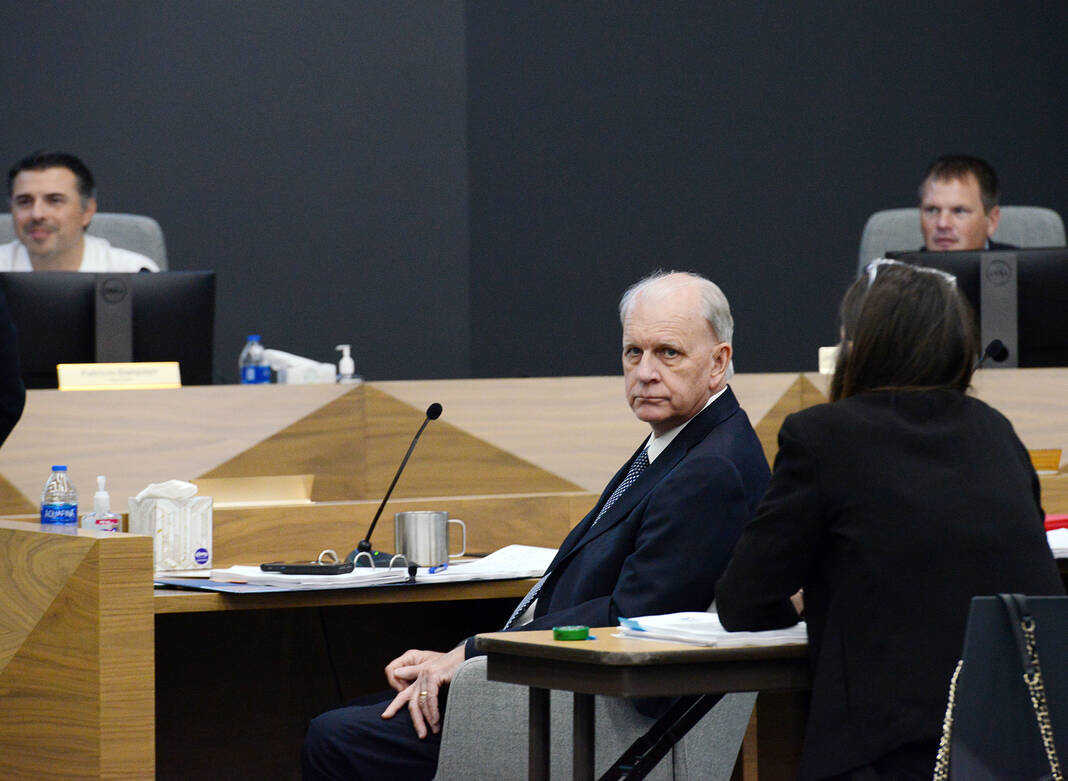
Among the developments since the Oct. 5 release of a forensic analysis into the failed Tenaska Brownsville Generating Station project, Brownsville Public Utilities Board Chief Executive Officer and General Manager John Bruciak has been placed on administrative leave by BPUB, while the board and the city of Brownsville are accelerating a rollback of utility rates that were raised to pay for the failed project.
On Oct. 17, Bruciak was placed on 60 days of administrative leave with pay in order for BPUB to examine in closer detail the findings by accounting firm Carr, Riggs & Ingram (CRI) that Bruciak and other BPUB management intentionally misrepresented the power plant project’s viability for years, resulting in tens of millions of dollars being squandered and ratepayers saddled with needlessly higher rates.
Brownsville Mayor Trey Mendez, who serves as the ex-officio member of the seven-member BPUB, said on Oct. 18 that the 60 days will allow the board to “figure out what exactly occurred” and get a firm grip on the facts, while also acknowledging that some members of the public demanded that Bruciak be fired immediately.
“I understand that the public sentiment is an immediate dismissal,” Mendez said. “The majority of the board felt that Mr. Bruciak should be allowed to tell his side of the story. That doesn’t mean that there won’t be further accountability in the future, it just means the board felt he should have some due process.”
At the city commission’s Oct. 18 meeting, city attorney Victor Flores presented a timeline of the city’s actions related to Tenaska, noting that the city this summer asked BPUB for a plan to roll back electric rates. Last February, BPUB passed a resolution with a recommendation to the city to roll back rates 22 percent to 2013 levels, and presented three options for doing so: an immediate rollback, one phased over six months, or one phased over two to three years.
According to Flores, representatives from BPUB advocated a two-year phased rollback for reasons including the impact BPUB’s capital improvement project capacity and the utility’s bond rating. While Mendez and commissioners expressed the need for urgency, the commission ultimately approved a two-year phased approach, or an 11-percent reduction per year. The first phase of the rollback took effect in June and the last is scheduled to take effect in May 2023.
The CRI report’s release, however, has rekindled a sense of urgency.
“I just don’t see how we can justify continuing to keep these rates in place without rolling them back, knowing what we know now,” Mendez said during the Oct. 18 commission meeting. I felt it was important to accelerate it.”
He thanked Commissioner Roy De los Santos for helping get the accelerated rate-reduction item on the agenda. Oct. 18 was the item’s first reading, with commissioners voting unanimously for approval. Once final approval takes place, ratepayers can expect to see additional relief in a few weeks, Mendez said.
Although BPUB implemented a series of rate hikes — the first on April 1, 2013, and the last on Oct. 1, 2016 — to pay for its share of the Tenaska project, those hikes are not the reason BPUB customers’ electric bills have skyrocketed. Rather, it’s primarily due to near record high cost of natural gas, which fuels most of the state’s power plants. Utility customers across the nation are being affected, not just ratepayers in the Rio Grande Valley, and market turmoil related to Russia’s war against Ukraine is mostly to blame for the extreme spike in natural gas prices.
Nevertheless, in addition to the accelerated rollback, the commission is moving toward temporarily suspending late fees and disconnections affecting BPUB electricity customers at least until February. BPUB approved the action at its Oct. 17 board meeting and the item will be on the agenda of the commissioners next meeting, Nov. 1, if not sooner.
“It now needs to be approved by us,” Mendez said. “I would ask that we put an urgency on that and do it as quickly as we can. It was too late to put on this (Oct. 18) agenda, but I’d like for it to be on the next agenda or sooner. Short term, this really is important. We’re hearing a lot of stories regarding disconnections, which is unacceptable obviously.”



